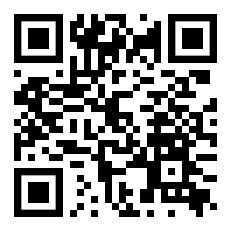China has a new record of Covid cases. Investors are returning to the dollar and gold
The Fed is set to release the minutes of its November meeting on Wednesday, and investors eagerly await any indication that policymakers will consider slowing the tightening process.
ECB officials seem to be divided over their future plans, with some advocating a sustained aggressive rate hike stance, while others are considering quantitative tightening (QT) earlier than expected to avoid such a hawkish interest rate hike. ECB President Christine Lagarde seems to support raising interest rates as the best tool for containing inflation.
Italy’s new right-wing government plans to announce Monday new spending of about 30 billion euros in next year’s budget, mostly focused on containing the impact of high energy prices. In an effort to help families cope with incredible inflation, which has reached an annualized rate of 12.6%, according to an EU-agreed index, the cabinet is considering eliminating a sales tax on necessities.
Oil prices fell on Monday, extending last week’s losses, as worries over rising COVID-19 infections in China and a potential global recession worsened demand prospects. On the other hand, if European politicians decide this week to put a ceiling on Russian oil prices, it could lead to supply cuts in the coming months, especially if inventories deplete faster. Therefore, the prospect of higher oil prices remains high. OPEC countries will meet on December 4 to decide on production, and any further supply cuts are likely to push oil prices higher.
The outlook for gold remains upward, despite some uncertainty. On the one hand, gold is rising on inflation expectations. On the other hand, gold does not protect against inflation and suffers greatly from rising interest rates. But analysts believe that given the fact that the market is now close to a maximum in interest rates, and in 2023 is expected to pause and then lower rates (according to the futures curve for the federal funds), such an asset as gold should take a weighty share in portfolios of active investors.
Asian markets were mostly down last week. Japan’s Nikkei 225 (JP225) declined by 1.31% over the week, Hong Kong’s Hang Seng (HK50) ended down by 0.04%, and Australia’s S&P/ASX 200 (AU200) decreased by 0.09%.
The People’s Bank of China (PBOC) on Monday left key lending rates unchanged for the third straight month as the central bank tries to strike a balance between boosting economic growth and curbing further yuan depreciation. The rise in COVID-19 cases in China has led to new lockdown measures in some of the country’s biggest cities, adding to fears of a slowdown in demand for crude oil from the world’s biggest oil importer. The country is currently battling its worst COVID outbreak since April, when several cities were blockaded.
In the commodities market, futures on natural gas (+8.37%), sugar (+2.09%), and corn (+1.71%) showed the biggest gains by the end of the week. Futures on coffee (-13.66%), WTI oil (-9.78%), Brent oil (-8.59%), gasoline (-7.32%), copper (-7.04%), platinum (-4.98%), palladium (-4.49%), silver (-3.19%), cotton (-3.14%) and cocoa (-2.22%) showed the biggest drop.
S&P 500 (F) (US500) 3,965.34 +18.78 (+0.48%)
Dow Jones (US30) 33,745.69 +199.37 (+0.59%)
DAX (DE40) 14,431.86 +165.48 (+1.16%)
FTSE 100 (UK100) 7,385.52 +38.98 (+0.53%)
USD Index 106.97 +0.28 (+0.26%)
News feed for: 2023.07.04
- German Producer Price Index (m/m) at 09:00 (GMT+3).
This article reflects a personal opinion and should not be interpreted as an investment advice, and/or offer, and/or a persistent request for carrying out financial transactions, and/or a guarantee, and/or a forecast of future events.
